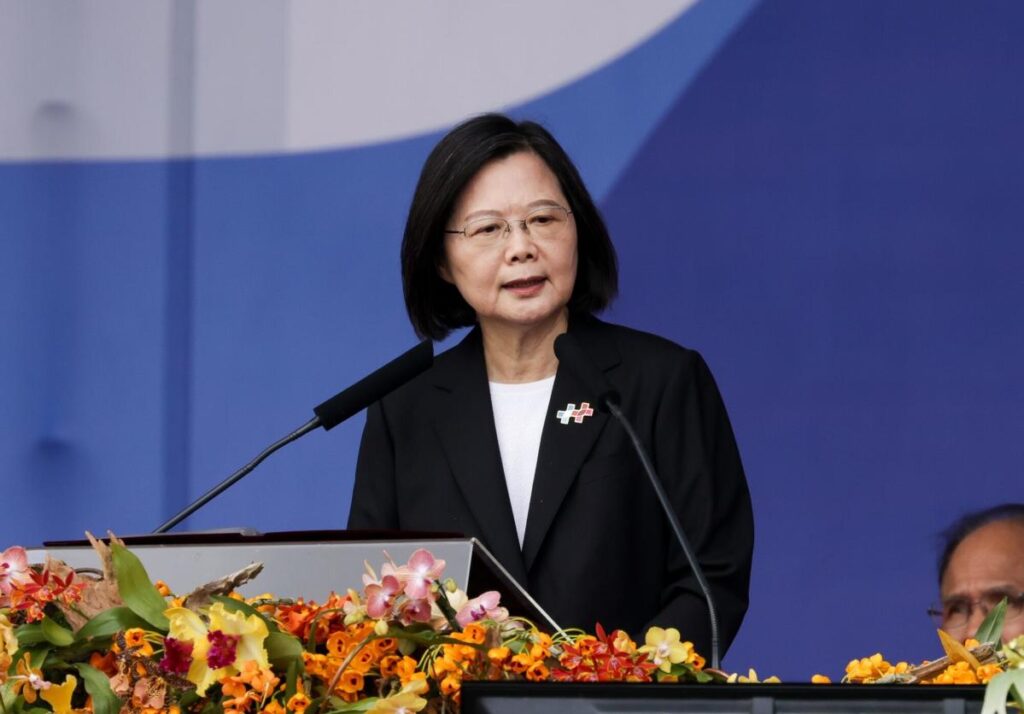The recent developments regarding the former President of Taiwan, Tsai Ing-wen’s planned visit to the UK have highlighted the delicate balancing act the British government must navigate in its foreign relations, particularly concerning China. As reported by the Guardian, the UK Foreign Office requested a postponement of Tsai’s trip to London, which was organized by a British-Taiwanese all-party parliamentary group. This decision appears motivated by the upcoming visit of Foreign Secretary David Lammy to Beijing, raising questions about the UK’s diplomatic approach towards both Taiwan and China. The postponement was suggested to mitigate potential friction with China, a nation with which the UK seeks to maintain cordial relations.
The implications of this request extend beyond mere scheduling; they reflect the broader geopolitical landscape in which Taiwan’s standing continues to be contentious. China’s sensitivity regarding Taiwan is well-known, and its reactions often inhibit foreign leaders’ engagements with Taiwan. Tsai’s anticipated visit, which would have symbolized support and acknowledgment of Taiwan’s status, is seen as potentially provoking a backlash from Beijing. This situation emphasizes the complexities of international diplomacy, where nations often must weigh their actions against potential repercussions from more powerful neighbors.
Meanwhile, Tsai Ing-wen’s office responded to the cancellation news by indicating that she would find a suitable time to visit the UK, although it did not confirm whether the postponement request originated from London. This ambiguity suggests a deliberate attempt to maintain a diplomatic tone while still asserting Taiwan’s desire to engage with international partners. Tsai’s planned engagements in Europe, including interactions with the European Parliament, highlight Taiwan’s ongoing efforts to strengthen its presence and relationships on the international stage, despite the challenges posed by mainland China’s influence.
The dynamics of this situation also underscore the UK’s position as it seeks to redefine its foreign policy in a post-Brexit world. As it attempts to forge new international partnerships, especially in Asia, balancing relations with China and support for Taiwan is a critical task. The UK’s cautious approach in delaying Tsai’s visit can be seen as an attempt to navigate these complex waters and avoid unnecessary tensions with Beijing, which has significant economic weight and investment interests in the UK. However, this strategy can also be perceived as diluting support for Taiwan, impacting perceptions about the UK’s commitment to democratic allies.
The overall situation reflects not just a specific diplomatic conundrum but a broader ongoing struggle between authoritarian and democratic models of governance, where Taiwan represents the latter. In this light, the UK’s hesitance may provoke scrutiny from advocates for democratic values who see active support for Taiwan as a crucial aspect of countering authoritarianism. For Taiwan, the ability to connect with Western democracies symbolizes not just political support but also a commitment to defending democratic principles in the face of pressures from authoritarian regimes.
In conclusion, the postponement of Tsai Ing-wen’s visit to the UK presents a multifaceted scenario involving international diplomacy, regional stability, and the safeguarding of democratic values in an increasingly polarized global environment. The actions of the UK’s Foreign Office, while aimed at preserving smooth ties with Beijing, also resonate deeply within the context of Taiwan’s quest for recognition and support on the world stage. As the situation evolves, it will be important to monitor how the UK balances its strategic interests with its commitments to democracy and international engagement, and how Taiwan continues to assert its presence amidst external pressures.

